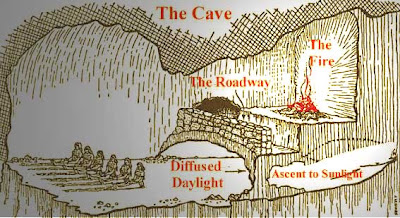
Some of this sound familiar from other things you've read or seen in movies?
A seminar, funded by the NEH (National Endowment of the Humanities) Enduring Questions program, that explores aspects of the Berklee College of Music motto, "Esse quam videri"-- To be, rather than to seem.

 Esse quam videri: to be, rather than to seem to be
Esse quam videri: to be, rather than to seem to beIn truth did Thais send me many thanks?It would have been enough to answer, “Many.” “Millions of them,” said the parasite. The flatterer always magnifies that which the one for whose gratification he speaks wishes to be large.
1 Laelius has in mind Thraso in the Eunuch of Terence, from which (ii. 1. 1) the following line is taken, and Pyrgopolinices, the braggart soldier in Plautus' Miles Gloriosus. The disgust Laelius feels at the fawning of the parasite is relieved by the humour of the soldier.
[99] Wherefore, although that sort of hollow flattery influences those who court and make a bid for it, yet even stronger and steadier men should be warned to be on their guard lest they be taken in by flattery of the crafty kind.
No one, to be sure, unless he is an utter fool, fails to detect the open flatterer, but we must exercise a watchful care against the deep and crafty one lest he steal upon us unawares. For he is very hard to recognize, since he often fawns even by opposing, and flatters and cajoles by pretending to quarrel, until at last he gives in, allowing himself to be overcome so that his dupe may appear to have seen further into the matter than himself. And yet, is there anything more discreditable than to be made a dupe? If not, then we should be all the more on our guard that it does not happen to us to have to confess: [p. 207]
To-day, of all old fools that play the comic parts,
You've wheedled me the most and made your greatest dupe.Lines from the Epiclerus by Caecilius Statius.1
Ever wonder, "what IS being?"
This course, "What Is Being?" is a special opportunity for Berklee students to explore an age-old question in multiple ways: through reading touchstone texts of philosophy, literature, psychology, and other disciplines; through exploring of how the subtleties of being and seeming play out in performance; and by considering what is being in contemporary culture. It is funded by a grant from the National Endowment of the Humanities, which pays for the students' books and tickets to plays, among other things. The class size is small (12) and the level of discussion is intense and interesting. We read into things. We look deeply. We keep asking questions and probably never really answer them fully. We'll read whole books and also parts of books, including a few choice sections from thinkers like Jean-Paul Sartre, Erving Goffman, Heidegger, and Jean Baudrillard. You can shape your multimedia projects about topics that interest you. If you think you are interested in taking this course this semester, keep reading.
Course Description
The motto of Berklee College of Music is Esse quam videri, a phrase from Cicero’s essay “On Friendship,” which translates as “to be, rather than to seem.” The course “What is Being?” gives you the opportunity to focus and reflect upon the differences between seeming and being, and think deeply about existence, self, and image. Organized around three interrelated themes: seeming vs. being; performance on stage and in everyday life; and the power of images and illusion in contemporary culture, the seminar requires students to consider realworld issues by exploring in depth the great works of philosophy, literature and psychology. The course includes the reading and discussion of Plato’s Republic, Machiavelli’s The Prince, Shakespeare’s Hamlet, and Cervantes’ Don Quixote. Funded by a National Endowment for the Humanities Enduring Questions grant, “What Is Being?” is a unique opportunity for serious seminar-style exploration of a foundational issue in human thought.This course requires a commitment from the participants to:
attend class,
read the assigned material,
engage with the questions and ideas in multimedia and written assignments that will be turned in on time
attend at least one play (tickets provided by the NEH grant)
and participate fully in class discussion and activities.